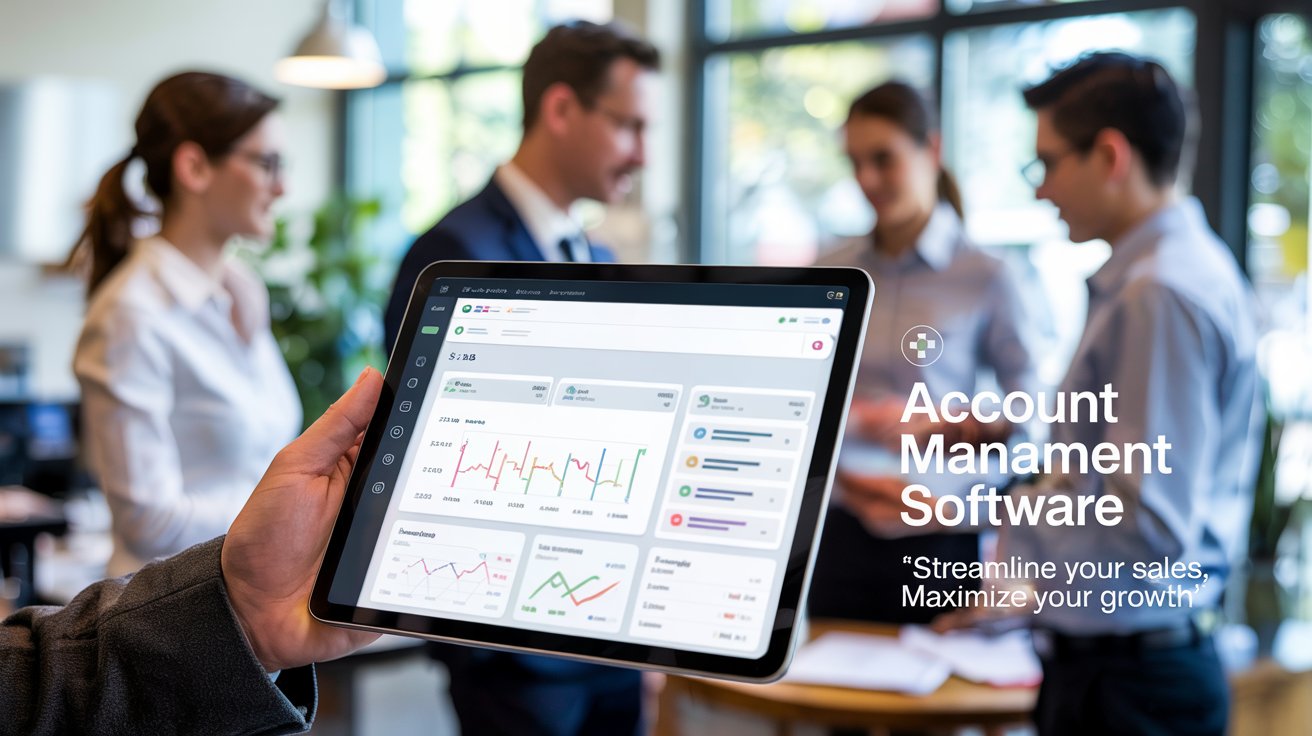The Shift Toward Smarter Sales Management
Sales today is no longer about cold calls and gut instincts. It is about timing, personalization, and delivering value at every stage of the buyer journey. Businesses that want to close more deals, retain key accounts, and grow strategically now turn to systems that support structure and data-driven decision-making. One of the most useful tools for this purpose is Account Management Software.
This type of software streamlines how sales teams manage their customer relationships, track engagement, and identify opportunities. Rather than juggling spreadsheets or isolated CRMs, businesses use account-focused platforms to maintain continuity, monitor activity, and personalize sales strategies for each client.
What Is Account Management Software?
Account Management Software is a centralized platform used to organize, track, and manage all interactions with business accounts. While many companies use CRM tools, account management platforms are designed specifically for long-term, ongoing client relationships. They allow businesses to group leads, opportunities, sales history, and tasks under one account profile.
Often integrated as a component of a broader Account Management System, these tools help sales teams manage large volumes of clients while maintaining a high level of service. Features often include contact records, notes, sales pipelines, task assignments, reporting, and integrations with communication tools.
Supporting the Modern Sales Process
The modern sales process is more complex than ever. From lead qualification to proposal delivery, multiple steps require attention and coordination. Using Account Management Software simplifies this complexity by organizing every interaction and task under a single client profile.
This allows salespeople to:
- Track touchpoints with each account
- Schedule and automate follow-ups
- Log calls, emails, and meetings
- Monitor pipeline progress
- Align with marketing and support teams
Instead of relying on memory or scattered tools, teams operate with clarity and confidence throughout the entire sales cycle.
Creating a Unified View of the Customer
One of the key advantages of using Account Management Software is the ability to create a unified view of each customer. Rather than having sales, support, and billing teams working in silos, all departments can access the same data, reducing miscommunication and delays.
When a salesperson logs into the system, they can see:
- Purchase history
- Open tickets or service requests
- Previously discussed pain points
- Decision-making contacts
- Stage of the sales funnel
This visibility helps reps personalize their pitch and time their outreach, which ultimately improves conversion rates.
Strengthening Relationships With Existing Clients
Sales isn’t just about acquiring new clients, it’s also about nurturing the ones you already have. Account Management Software provides visibility into current contracts, renewal dates, usage patterns, and account health. This information allows sales teams to be proactive about renewals, upsells, or re-engagement campaigns.
Businesses with complex or long-term sales cycles especially benefit from this structure. It becomes easier to monitor client satisfaction, track commitments, and identify when additional support or outreach is needed.
Pipeline Management for Predictable Revenue
Every sales team needs visibility into what’s coming next. Account Management Software includes robust pipeline tracking that allows businesses to see which deals are in progress, how close they are to closing, and where the potential roadblocks lie.
Sales managers can sort accounts by deal size, expected close date, or product type. This helps with forecasting and resource allocation. Instead of relying on estimates or outdated spreadsheets, teams work with live data that reflects current progress and performance.
Task Automation and Time Efficiency
Sales reps spend a lot of time on manual tasks, from logging calls to sending follow-up emails. Account Management Software reduces this workload through automation. Many platforms offer:
- Automatic reminders for follow-ups
- Email templates based on client type
- Scheduled check-ins for inactive accounts
- Automated assignment of tasks to team members
These features allow reps to spend more time selling and less time updating records. Over time, this increases team efficiency and consistency in account handling.
Better Lead-to-Account Transition
Often, marketing teams generate leads that are later passed to sales. Without a structured handoff, important details can get lost in the transition. Account Management Systems offer a smoother lead-to-account conversion process.
Once a lead becomes a qualified opportunity, the account can be enriched with relevant data, including the client’s behavior on the website, email interactions, and past inquiries. Sales teams can then tailor their approach with context, making the client feel heard and understood from the very first pitch.
Tracking Buyer Behavior and Insights
Modern platforms offer analytics that give insight into client behavior and sales team performance. For example, sales managers can see which accounts have stalled, how long deals typically take to close, or which reps are performing best.
This information is used to improve sales strategies, adjust incentives, and coach underperforming reps. It also allows businesses to identify their most valuable accounts and replicate success across similar clients.
Supporting Account-Based Selling
Account-based selling is a strategy where sales efforts are focused on high-value accounts using personalized outreach. Account Management Software is the backbone of this approach. It allows sales reps to segment clients, monitor their engagement, and tailor messages for specific roles or departments within a company.
This kind of targeted strategy requires coordination and timing, both of which are supported through the system’s task management and collaboration tools.
Real-Time Collaboration and Team Alignment
Sales is not a one-person job. Account managers often work with marketing, technical support, and billing to close deals and deliver value. A centralized system allows these teams to collaborate without confusion.
For example, if a client requests a demo, the salesperson can tag the product team. If there’s a question about payment terms, the finance team can respond without needing a separate thread. Everyone works from the same source of truth, minimizing delays and increasing transparency.
Faster Onboarding for New Sales Reps
Training new sales reps can be time-consuming. Without a central system, it’s hard for them to understand existing accounts, ongoing deals, or sales processes. Account Management Software simplifies onboarding by giving new hires access to account histories, documentation, and templates.
With everything organized and easy to find, new reps can become productive faster. This helps businesses scale their teams while maintaining the quality of client relationships.
Mobile Access for Field Sales Teams
Sales reps working in the field need access to information at all times. Most modern software platforms offer mobile access, allowing users to view account details, log notes, or update deal stages directly from their phones or tablets.
This real-time access ensures that meetings are informed, updates are made instantly, and opportunities are captured before they slip away. For companies with field teams or hybrid operations, mobile functionality is no longer optional — it’s a necessity.
Improving Client Retention and Lifetime Value
By using structured tools, businesses improve the way they engage with clients. Consistent communication, accurate follow-ups, and personalized engagement lead to better retention. Existing clients are also more likely to refer others when they feel their needs are understood and respected.
With a clearer understanding of account status, sales reps can anticipate needs, offer relevant solutions, and keep clients engaged long after the first deal is closed. This approach turns single transactions into long-term partnerships.
Choosing the Right Account Management System
Not all systems are the same. Businesses should look for features that match their sales process, industry needs, and team size. Factors to consider include:
- Customizable dashboards
- Integration with email and CRM tools
- Workflow automation
- Security and data access control
- Reporting and forecasting tools
- Scalability for growing teams
Ease of use is also key. A complicated system may discourage adoption, while an intuitive interface will support consistent usage and data accuracy.
Final Word
Sales success today depends on more than a good pitch. It relies on strategy, data, and the ability to deliver personalized value across every touchpoint. Account Management Software empowers businesses to manage their sales relationships more effectively, reduce errors, and increase revenue predictability.
By integrating sales tracking, task management, and communication history into one platform, companies create a system that supports both growth and retention. When paired with a full Account Management System, these tools help sales teams work smarter, stay organized, and win more business.
For companies looking to implement a system tailored to their unique sales processes, working with a custom software development company ensures that every feature, integration, and workflow fits exactly as needed — supporting your team today and scaling with you tomorrow.

